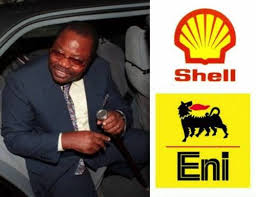EU Forges Ahead With Africa Gas Deals
The European Union (EU) is moving ahead with plans to enhance Africa-EU supply chains. Following the Russia-Ukraine crisis and supply disruptions, the bloc has emphasized the viability of Africa’s reserves to meet European demand in which a series of deals signed between Europe and African governments and national oil companies (NOC) are a testament of Europe’s increased focus on enhancing energy relations with Africa. Despite Africa’s position as the ideal partner for the EU, the continent needs its gas resources domestically before they can be utilized internationally. Therefore, a mutually beneficial partnership is necessary, one in which EU member countries scale up investment in African gas.
EU-Africa Deals Expand Supply Chains
On April 11, 2022, Eni signed an agreement with Algeria’s Sonatrach whereby the two corporations will increase cooperation on gas development while leveraging the TransMed/Enrico Mattei pipeline to export up to nine billion cubic meters (bcm) of Liquefied Natural Gas (LNG) to Europe. Similarly, on April 13, 2022, Eni also signed a deal with Egypt’s EGAS for the two to jointly conduct exploration activities to increase the country’s gas reserves in existing blocks while targeting new acreage in the Nile Delta, Eastern Mediterranean and Western Desert regions. The deal will also see Egypt expanding gas exports to Europe to three bcm of LNG as from 2022. Meanwhile, in Angola, a declaration of intent for increased cooperation on gas exploration, production and trading was also signed in mid-April 2022, between H.E. Joao Lourenco, President of Angola, and Claudio Descalzi, the CEO of Eni.
Meanwhile, backed by significant gas resources, emerging markets across the continent have also been identified as potential partners for the EU. Countries such as Mauritania, Senegal, Ghana, Mozambique, Equatorial Guinea and Tanzania could tap into international markets, ramping up LNG exports as soon as large-scale projects come online. Projects such as Mozambique’s 3.4 million ton per annum (mtpa) Coral Floating LNG (FLNG), Equatorial Guinea’s 2.5 mtpa Fortuna FLNG and Senegal’s 10 mtpa Yakaar-Teranga LNG hub will be key for addressing regional and international demand.
With the European Commission expected to kickstart official communications with gas producing countries from Africa and other regions in late May 2022, under efforts to expand energy imports by 50 bcm of LNG and by 10 bcm of pipeline gas to reduce the reliance on Russian energy by two-thirds by the end of 2022, Africa, with its vast gas resources is well positioned to be Europe’s main supplier.




